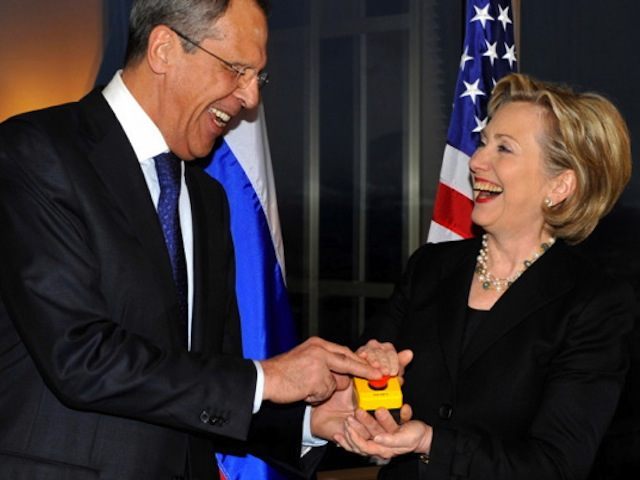The press is abuzz with the latest element in the left-wing conspiracy theory that Donald Trump is secretly a Russian agent.
The New York Times reports that Trump’s campaign chair, Paul Manafort, is listed in a “secret ledger” showing payments from the former, Russia-friendly, Ukrainian government. The fact that Hillary Clinton’s campaign chair, left-wing George Soros agent John Podesta, helped a Russian government-linked company bag $35 million — an actual, bigger scandal — is ignored.
First of all, it is not clear what the Times story shows, because the Times spends so much time undermining its own case.
Paul Manafort consulted for the Ukrainian ruling party, and helped it win elections. Manafort was listed in a handwritten ledger as having received money from that same party. The Times cannot say if he received the money; notes that Ukrainian investigators “have yet to determine if he actually received the cash”; adds that “the purpose of the payments is not clear”; reports that Manafort “is not a target” in a separate investigation into offshore dealings by the former regime; and admits that it is “unclear” whether Manafort would have had to register with the U.S. government as a foreign agent.
All the Times has is what is already known about Manafort: namely, he advised an unsavory regime, and was paid handsomely for his services.
It is an unfortunate fact of political life that senior operatives on both sides have side gigs working as lobbyists, sometimes for foreign governments — and sometimes nasty ones.
In 2008, Sen. John McCain (R-AZ) tried to cut lobbyists from his campaign staff to set an example; then-Sen. Barack Obama (D-IL) ran on a “no lobbyist” pledge that he violated even before he took the oath of office. Even the left-leaning PolitiFact named the no-lobbyist pledge a “broken promise” by Obama. In 2015, Breitbart News broke the story that a former employee of a pro-Iran lobby group was advising the White House as the Iran deal was being negotiated, meaning that the ayatollahs had people on both sides of the table. The media largely shrugged.
It is certainly possible that Manafort was involved in corrupt dealings with the old Ukrainian regime. But the Times does not actually prove that. Instead, it throws enough innuendo into the article to associate Manafort with the old regime’s excesses — and to stoke the conspiracy theory of Russian control of Trump.
Keep in mind that Trump’s opponent not only pushed the “reset” button with the Putin regime in an effort to establish closer ties, but also presided over a nuclear disarmament treaty that slashed America’s nuclear arsenal while leaving Russia’s weapons largely intact; abandoned American missile defense programs in Europe to appease Russia, undercutting our Eastern European allies in the process; allowed a Putin-controlled company to acquire 20% of U.S. supplies of uranium, after a timely donation to the Clinton Foundation; and encouraged American tech companies to invest in a Russian project that was likely used to improve Russian defense and espionage.
The fact that the media are obsessing about what is still, at this stage, a flimsy conspiracy theory about Russian ties to the Trump campaign, while largely ignoring the overt record of appeasement and explicit commercial ties between the Clinton campaign and the Putin regime, says more about media bias than it does about the business dealings of Paul Manafort.
Joel B. Pollak is Senior Editor-at-Large at Breitbart News. His new book, See No Evil: 19 Hard Truths the Left Can’t Handle, is available from Regnery through Amazon. Follow him on Twitter at @joelpollak.

COMMENTS
Please let us know if you're having issues with commenting.